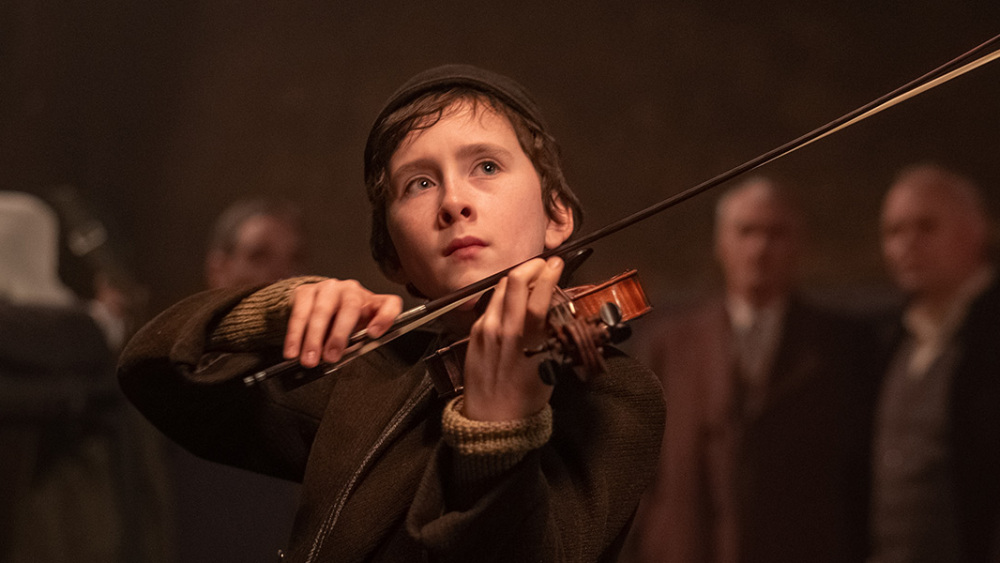Song of Names
by Matt Weiner
A Holocaust movie where the central tragedy haunts the characters just offscreen like a specter, anchored by two forceful leads and a mystery that spans decades. What could go wrong? A lot, it turns out.
Dovidl (Clive Owen/Jonah Hauer-King) is a Jewish violin prodigy from Poland. Martin (Tim Roth/Gerran Howell) is an accomplished musician in his own right, but once Dovidl joins the household as a wartime refugee, Martin seems to lack both the talent and the affection to win over his father’s attention.
When Dovidl disappears on the night of a big coming-out concert, it tears families apart and leaves Martin with a lifelong quest for answers about what happened that fateful evening. Directed by François Girard and written by Jeffrey Caine (based on the novel by Norman Lebrecht), The Song of Names jumps back and forth in time between Martin’s contemporary search for the missing genius Dovidl and the wartime London childhood that originally brought them together.
The second biggest problem the film is up against is that while Roth does yeoman’s work keeping the present-day mystery engaging, it’s the slow drips of revelations from the past that hold the movie back.
But the biggest weakness is how flat and inoffensive those revelations end up being, which points to a sad milestone for the genre. It’s not that The Song of Names is aggressively bad with its background treatment of the Holocaust. In fact, it goes out of its way not to take offense. (Although Clive Owen’s spirit gum Haredi beard comes dangerously close.)
That inoffensiveness holds the movie back from being memorable, or at least different enough to merit the solemn subject. If we’re so far removed now from the Holocaust that not every movie needs to be a Prestige Event (remember that time we collectively lost our minds pretending Life Is Beautiful was deeply observed and worthy of awards, rather than a peerless grotesquerie of the era?), we should also be far enough removed for those involved to add something new to the conversation.
And for a brief moment, The Song of Names comes close. The World War II-era storyline trembles with pregnant pauses around themes like there might be nothing inherently heroic about survival, or that losing hope might be a recognizably sane response to unfathomable enormities.
But the schmaltzy resolution is a hard comedown. And given what it’s all about in the end, The Song of Names would’ve been better off playing up the mystery—at least Tim Roth is great. And who doesn’t like a mystery that wraps up with tidy answers?

